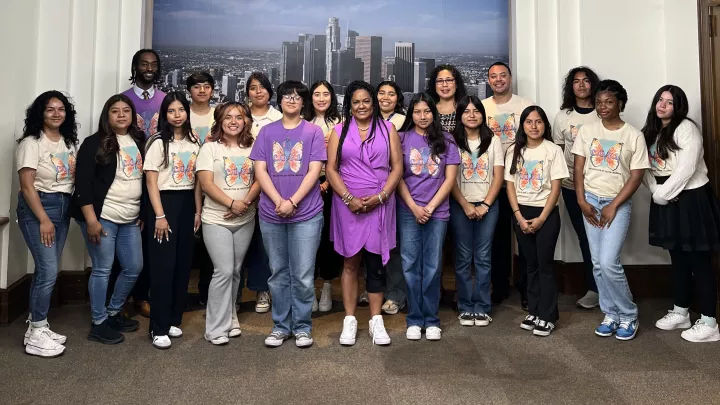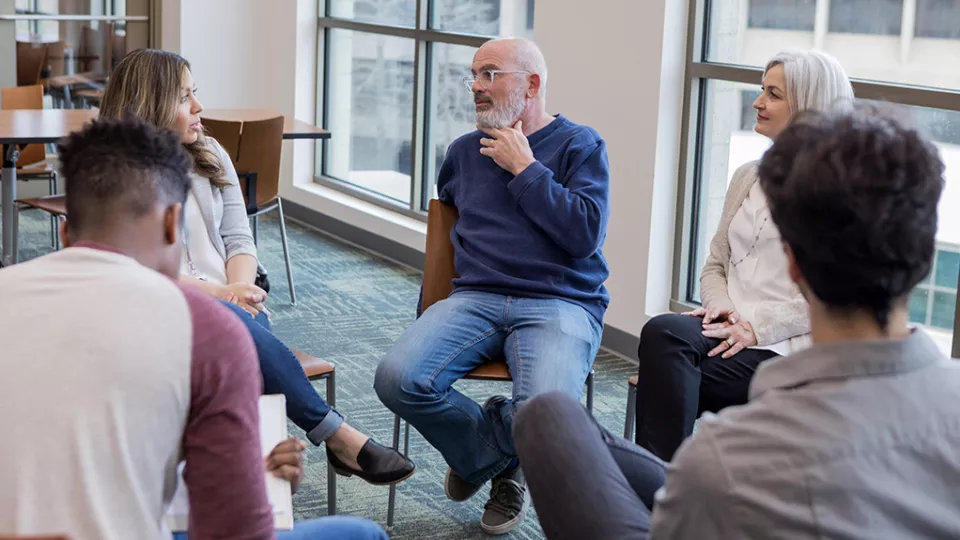
Partnering with Patient Families to Provide Better Care for Everyone
Dozens of presentations are held each year at Children’s Hospital Los Angeles to ensure its experts stay up-to-date on scientific discoveries and clinical breakthroughs. While most continuing medical education events are lectures by professors and peers in academia and medicine, the Grand Rounds hosted by the hospital’s Office of Patient Experience was different.
“Unpacking the Emotional Backpack” was a learning opportunity for all CHLA team members, and it was developed by patients and patient family members—all representing the hospital’s Patient and Family Advisory Council.
One of several groups that advocate for CHLA patients and families to optimize their overall experience, the Patient and Family Advisory Council is grounded in the core concepts of patient- and family-centered care: respect and dignity, information sharing, participation and collaboration. The council works with departments across the hospital to not only advocate for, but work with and teach the concepts of patient- and family-centered care.
The key message was this: Life is complicated, and often more so for children and families with medical needs. Imagine being in their shoes, carrying a “backpack” full of emotions, such as fear, sadness or confusion. Patients and families need their care teams to help lighten their load—through communication, collaboration and empathy.
Turning ‘pain into purpose’

Among the event’s speakers was 21-year-old Sarah Wong, a former patient and Chair of the Patient and Family Advisory Council. Sarah’s journey with CHLA began in 2011 when she was diagnosed with eosinophilic gastroenteritis (EG), a rare autoimmune disease that causes white blood cells to attack foreign objects in the stomach, including food.
“My previously ‘normal’ childhood changed overnight,” she says. “CHLA became a second home.”
For five years Sarah was on an elemental diet, meaning all of her nutrition had to go through a G-tube, which was surgically inserted into her stomach. When her EG went into remission, there were new battles to fight, including irritable bowel disease, gastroparesis and a mass in her jaw. She’s had 20 hospitalizations and nearly 25 surgeries under general anesthesia.
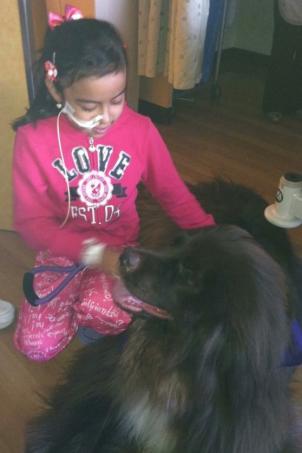
“I constantly reminded myself that while I couldn’t change my circumstances, I could change my perspective, and grasping onto hope and my dreams to come was a significant part of that. I’d say to myself, ‘When I’m 20, I will be in college, studying to become a doctor.’ I didn’t want my experience to go to waste because I felt like that would be such a disservice to myself and others.”
Now a senior in college, Sarah is following her dream. She is studying to become a physician specializing in pediatrics, and she learned about the Patient and Family Advisory Council while volunteering at CHLA.
“I didn’t know what to expect when I got involved, but it has exceeded my expectations,” says Sarah. “It’s a positive and healing space for myself, as well as a chance to advocate for other patients and families going through what we have experienced. Being part of the council gives me the opportunity to turn my pain into purpose.”
A diverse and equitable partnership
The Patient and Family Advisory Council is a collective group, representing families across every area of the hospital. But it’s not the first of its kind. Children’s Hospital Los Angeles has had family-driven councils for years.
Their numbers are continuously growing, and today patients and families partner with the hospital through the Center for Healthy Adolescent Transition Advisory Council, the Adolescent and Young Adult Advisory Council, and the E-Advisory Council that allows parents and families to participate through online surveys. There is also a Spanish-language council, Consejos Asesor para Familias Latinas, designed to encourage participation within the hospital’s Latino patient families. Two-thirds of CHLA’s patient population is Latino, and while the patients themselves tend to be bilingual, their parents are often monolingual Spanish.
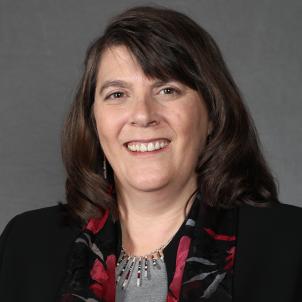
By bringing members from the different councils together, the Patient and Family Advisory Council reflects the diversity of families the hospital serves, explains Sandra Mintz, MSN, RN, Clinical Services Manager of CHLA’s Office of Patient Experience.
“Some families are lower income, some higher income. Some have insurance while others don’t,” she says. “Each family faces unique health challenges. Everyone brings a different perspective, and that’s what makes the council such a strong partner in improving all patient and family experiences at Children’s Hospital Los Angeles.”
Mintz adds, “Whether providing reimbursement for transportation or childcare costs to attend meetings, or hosting more meetings entirely in Spanish, we hope to encourage participation and equity when it comes to access so we can have a diverse mix of families—and make sure we are truly representing the entire hospital and those we serve.”
‘They’re driving the future’
The Patient and Family Advisory Council’s bimonthly, 90-minute meetings usually include one or two presentations from a hospital department along with a predetermined topic of discussion.
“They're driving the future,” Mintz says. “That’s what they signed on for, too. One hundred percent of these families tell us their entire goal of being involved is to make a difference or give back to the organization, because the organization helped them and their child,” Mintz says “Members also ask: ‘How can we help the next family? How can we make our outcomes better?’”
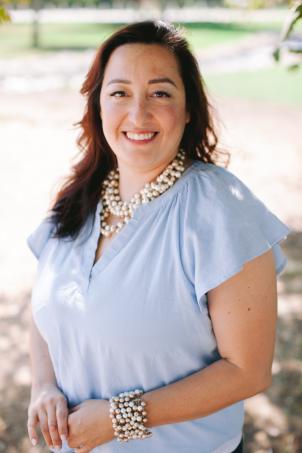
Arianne Campbell, a patient mom and former Council Chair, appreciates that there are so many opportunities to provide feedback and suggestions for improving the patient and family experience. “Many of us families have to see multiple departments, and one of our concerns is that it can be frustrating if teams don’t work in tandem. This council is a forum for us to suggest ways to streamline processes and improve communication.”
In the past few months, the council has helped facilitate workshops launched by the Center for Healthy Adolescent Transition and the Adolescent and Young Adult advisory councils to help families new to CHLA communicate effectively with their providers, advocate for themselves and navigate the hospital confidently. The Consejos council is developing similar workshops for mono-Spanish language patients and families.
The Patient and Family Advisory Council is also partnering with the Office of Digital Transformation, part of the Innovation Studio at CHLA, to make the hospital’s digital tools more accessible to the people who use them—patients and families. And at a recent council meeting, members welcomed a manager from the Office of Advanced Practice, who wanted to get the council’s thoughts on how to best explain to families the important role of advanced practice providers, such as nurse practitioners and physician assistants, in a patient’s care team.
Mintz knows that parents and caregivers might question whether it’s worth their time to get involved. Her hope is that by learning more about the council and the many ways families can participate, they’ll realize it’s absolutely worth it.
“Sometimes when parents are asked to respond to surveys or provide their opinions, they report feeling like, ‘You just want my feedback but you’re not going to do anything with it. You just want to check a box,’” Mintz says. “That’s not what CHLA’s Patient and Family Advisory Council is about. We want families to understand that their voices matter.”
